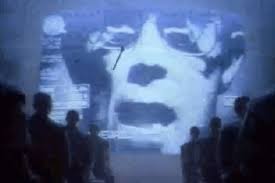The Rejection of the Tribulation Temple
66: 1-4
The rejection of the Tribulation Temple DIG: Why would God reject this Temple? How were the Jews deceived? How does the rebuke for the wicked and promises to the faithful in 56:9 to 58:14, parallel to the rebuke for the wicked and promises to the faithful in 65:1 to 66:17 (see the chiastic structure in Jj – My House Will Be Called a House of Prayer for All Nations). Why is a dog’s neck and pig’s blood mentioned?
REFLECT: When you go to church or messianic synagogue, what is more important, the fact that you are there or your spiritual attitude? Have you ever found yourself focusing on the form of worship and missing the Person of worship? How did you see it? Change it? What do you think the LORD cares about more?
The fervent prayer of the believing remnant in Chapter 64 is answered by God in Chapters 65 and 66. ADONAI makes it very clear that their sins and unfaithfulness were responsible for the judgment they had endured during the Great Tribulation. But their sins had not frustrated His promises and purposes concerning Isra’el.
Here the prophet speaks of the Tribulation Temple that God will not accept. This is what the LORD says: Heaven is My throne, and the earth is My footstool. Where is the house you will build for Me? Where will My resting place be (66:1)? This excludes Solomon’s Temple or the first temple because God had accepted those. This was proved when God moved His Sh’khinah glory from the Most Holy Place in the Tabernacle to Solomon’s Temple. This rejected Temple also excludes Herod’s Temple or the second Temple. Haggai and Zechariah were prophets that encouraged the people to have that second temple built. Nor could this be talking about the fourth Temple, or the Messianic Temple (Ezeki’el 40-48) because God Himself will build it. So the only Temple that the Bible talks about that could be disapproved of would be the third Temple or the Tribulation Temple (see the commentary on Revelation, to see link click Bx – The Tribulation Temple).
We know from Scripture that by the middle of the Great Tribulation this Temple is both standing and functioning (Dani’el 9:27, 11:31, 12:11). Therefore, it is not a Temple that God will bless or accept because it will be based on a sacrificial system that has been done away with. Rather, God says that what He accepts or esteems during the Great Tribulation is not a sacrificial system. ADONAI asks a rhetorical question: Has not My hand made all these things, and so they came into being, declares the LORD? The appropriate response would be, “Yes, of course, LORD, You have brought out the starry host one by one, You call them each by name, and because of Your great power and mighty strength not one of them is missing. You have created all these things (40:26)! But God answers that His sanctuary is the human heart. This is the one I esteem: The person who is humble and contrite in spirit and trembles at My word (66:2).

God says that no sacrifice offered on the Tribulation altar will be accepted. Whoever sacrifices a bull is like one who kills a man, and whoever offers a lamb, like one who breaks a dog’s neck; whoever makes a grain offering is like one who presents pig’s blood, and whoever burns memorial incense, like one who worships an idol (66:3a). Killing men, breaking dog’s necks or worshiping idols were never acceptable sacrifices to God, but they were evidently being offered during the second half of the Great Tribulation by the Gentiles offering their own form of Temple sacrifices. The reason God will reject all of them is because they have chosen their own ways, and their souls delight in their abominations (66:3b). By rebuilding the Temple and reinstituting the counterfeit Levitical system, they will have foolishly chosen to try to establish their own righteousness, and by doing so they will reject the righteousness of God.
Then the judgment of God will come. These next four lines of Hebrew text are almost identical with 65:12b. The only difference is that here apostate Gentiles are in view, and there apostate Jews were doomed because of the spiritual adultery. So I will choose harsh treatment for them. Their delusion about being able to establish their own righteousness will cause God to bring upon them what they dread. Why? For when I called, no one answered, when I spoke, no one listened. Because they did not listen to God and chose, instead, to do evil in His sight. They did evil in My sight and chose what displeases Me (66:4). That harsh treatment, ta’alulim, is probably better rendered sudden judgment here. Therefore, sudden judgment will be their lot when Yeshua Messiah returns with justice to judge and make war (see the commentary on Revelation Ew – I Saw Heaven Standing Open and a Rider Whose Name is Called Faithful and True).



Leave A Comment